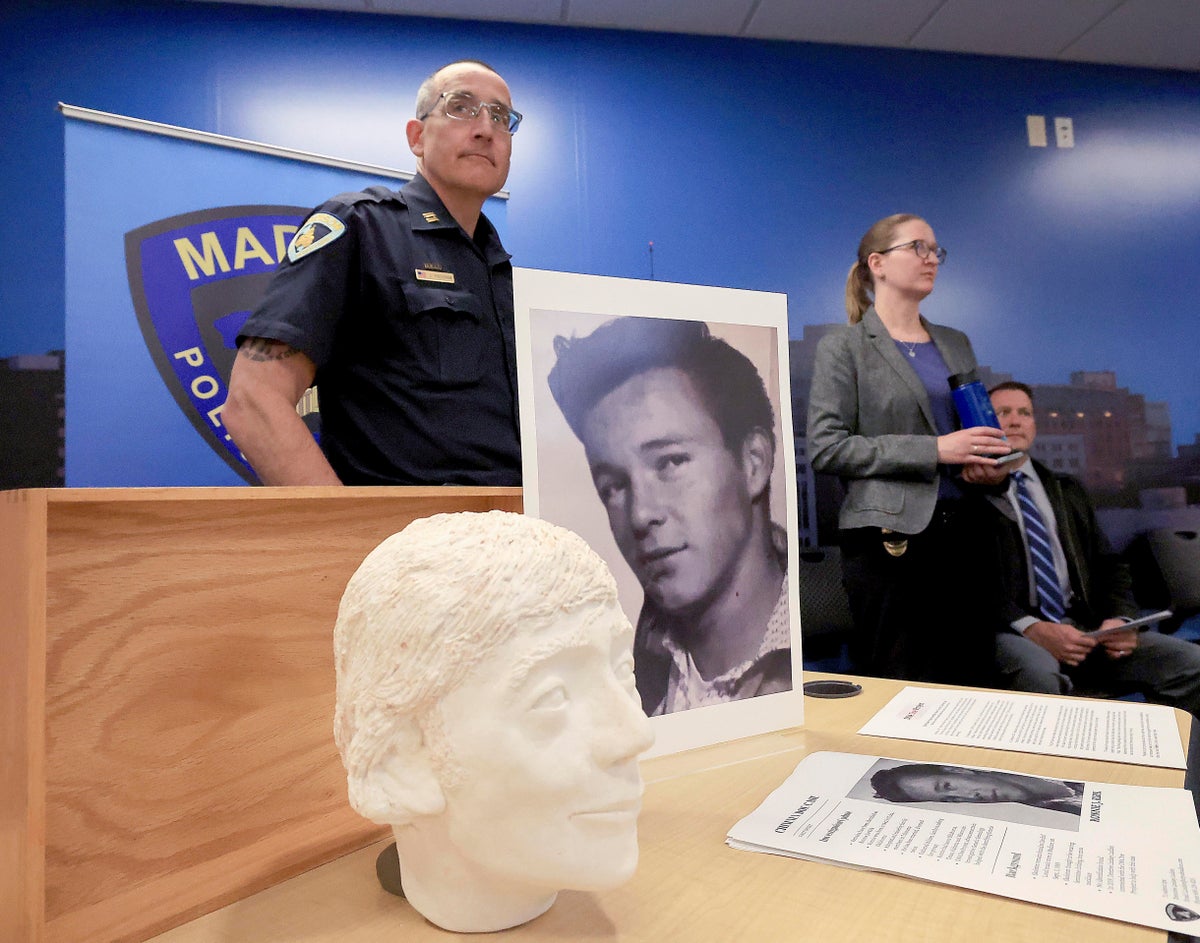The skeletal remains of a man, colloquially known as “Chimney Doe,” have been identified nearly 35 years after they were found in a chimney at a music store in Wisconsin. The remains were discovered in September 1989 by the owners of Good ‘n Loud Music store in Madison. During routine boiler maintenance, a human skull was seen through a pipe connecting the boiler to the chimney. The Madison Police Department and the DNA Doe Project announced this week that the remains have been identified as Ronnie Joe Kirk from Tulsa, Oklahoma.

Initial Theories and Investigation
Upon discovery, authorities had two primary theories: either the man was murdered and disposed of in the chimney, or he was a burglar who got stuck. Police, along with a construction crew, worked to uncover the lower part of the building’s chimney to retrieve the rest of the remains. The Milwaukee Journal Sentinel reported on the incident, stating the remains were found during maintenance work.
Identification Process
The skeletal remains were initially described as wearing feminine clothing and an iron cross necklace, but this was later corrected. According to the DNA Doe Project, there was no evidence to suggest Ronnie Joe Kirk identified as anything other than male. At the time of discovery, forensic analysis determined the remains were of a white male between 18 and 35 years old, standing approximately 5 feet 7 inches tall. The case remained unsolved for decades, with no successful identification of the remains, which were dubbed “Chimney Doe.”
Advances in DNA Technology
In 2019, Detective Lindsey Ludden reached out to the DNA Doe Project to utilize advancements in DNA technology and genetic genealogy to identify the remains. It took over two years to develop a DNA profile suitable for investigative genetic genealogy. A forensics lab in Santa Cruz, California, extracted sufficient DNA from rootless hair to develop Kirk’s profile, which was then uploaded to databases used for genetic genealogy. Genealogy work began in August 2022, and it took about six months to identify Ronnie Joe Kirk.
Life and Background of Ronnie Joe Kirk
Ronnie Joe Kirk was born in Tulsa, Oklahoma, in 1942 and was adopted. He attended high school in Tulsa and later married and divorced twice, having children. Kirk had connections to Missouri, Texas, Alabama, and Wisconsin. The identification provided closure to a long-standing mystery, highlighting the challenge of tracing his familial connections due to his adoption.
Ongoing Investigation
Authorities are still investigating how Kirk ended up in Madison and how his remains got into the chimney. The DNA Doe Project noted there was no way someone could have entered the pipe from inside the building. The Doe Network speculated that Kirk might have been a burglar who got stuck or a murder victim hidden in the chimney. An autopsy revealed severe fractures in the pelvic bones, suggesting injuries inflicted around the time of death.
Significance of Genetic Genealogy
Genetic genealogy, which creates family history profiles using DNA test results and traditional genealogical methods, has become a vital tool in cold case investigations. It has gained popularity among the public and has helped solve numerous cases previously considered unsolvable. The Center for Forensic Science Research and Education emphasized that technological improvements have made it easier to develop DNA profiles from smaller amounts of biological evidence, aiding law enforcement in finding matches in national databases.

The identification of Ronnie Joe Kirk’s remains marks a significant step forward in a decades-old mystery, but questions about the circumstances of his death remain. The ongoing investigation and the use of genetic genealogy demonstrate the power of modern science in solving cold cases and providing closure to families of missing persons.
